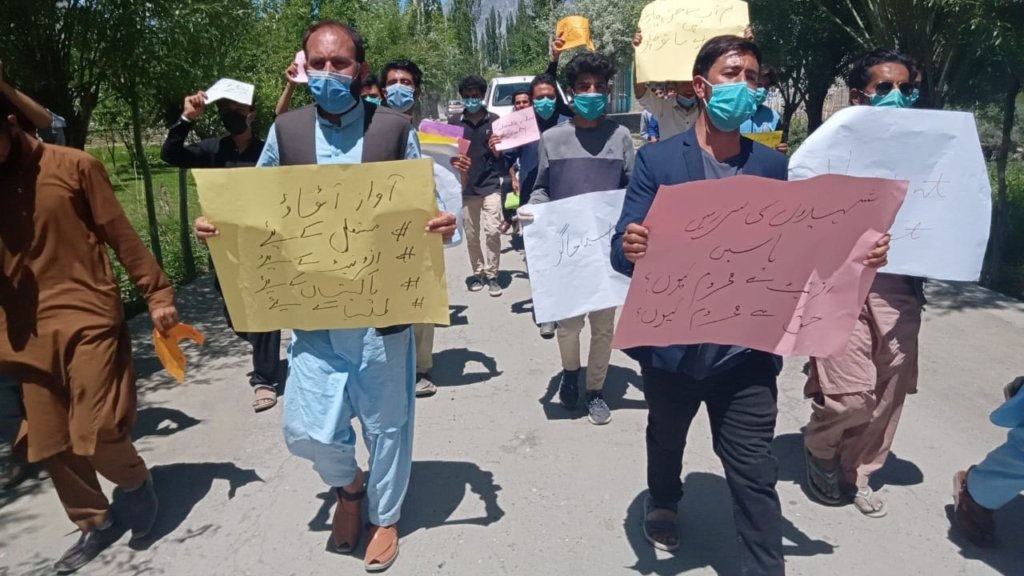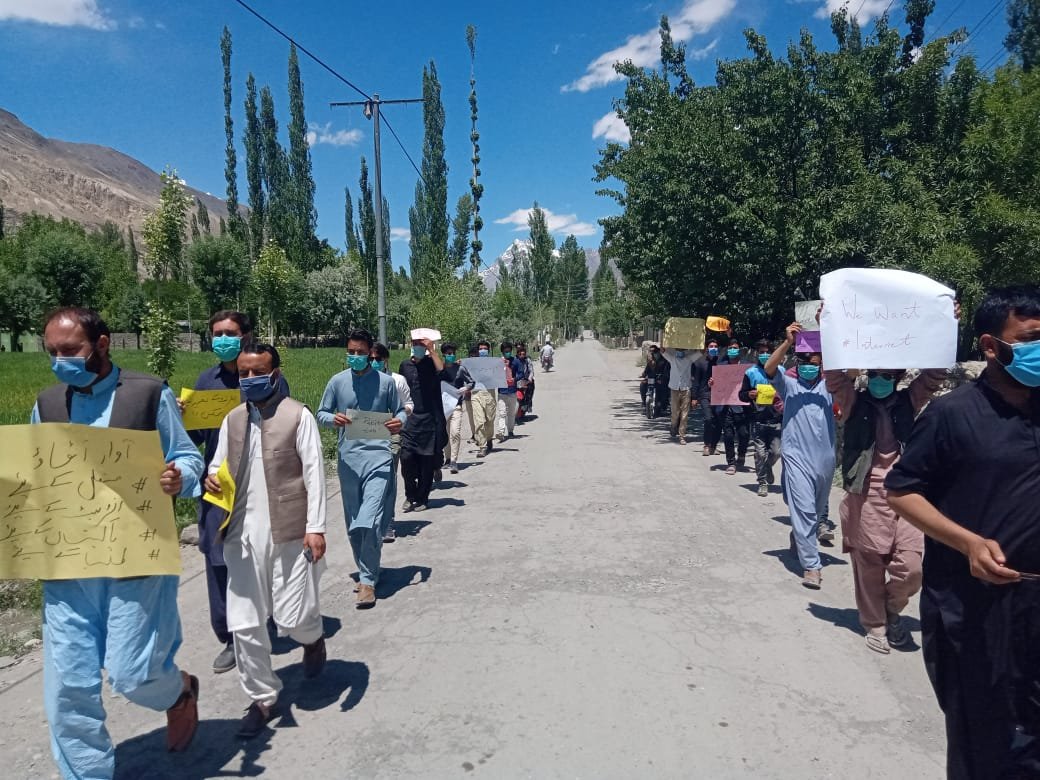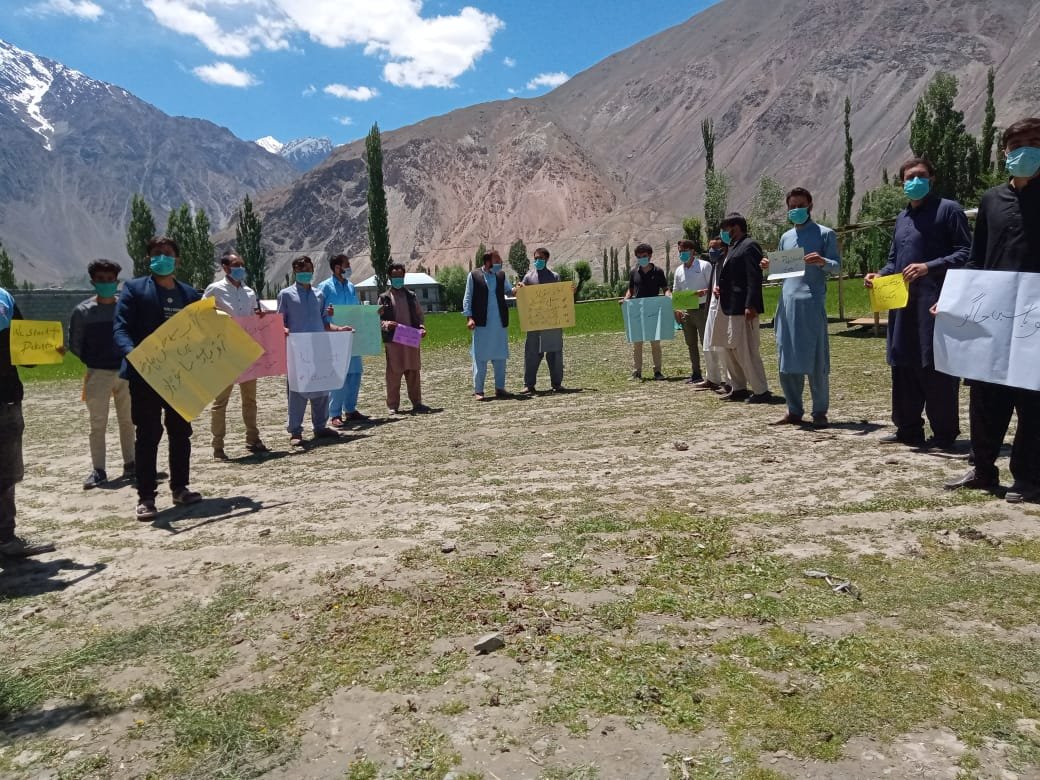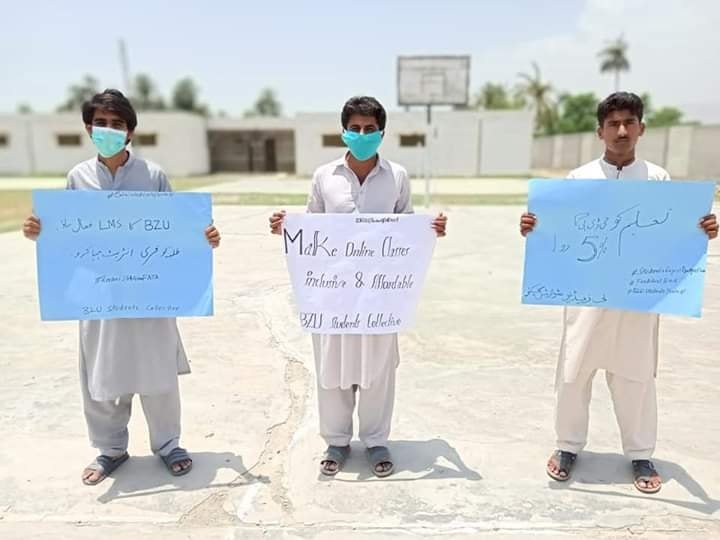by Gul Nayab
Yasin (GB): Frustrated by non-availability of internet connectivity and electricity, students in rural areas across Pakistan, Azad Kashmir and Gilgit-Baltistan continue to protest the Higher Education Commission (HEC) decision asking the universities and colleges to switch over to online education.
A protest rally in this regard was organised by students and youth against the nonavailability of the internet service in Yasin valley on Monday.
Students from different universities, youth activists and civil society members marched on the main bazaar and assembled outside Special Communications Organisation (SCO) offices Taous on Monday. They were holding placards and banners inscribed with various demands and chanted slogans. They dispersed peacefully demanding the SCO authorities to address the problem.
Addressing the protesters, youth leader Iqbal Nasir narrated the frustration of students due to the poor internet services in the region. He said that people of Sandi, Gojalti, Qurqalti, Thoi and other villages were deprived of internet services. He urged SCO authorities to resolve the issue.
Rehmat Rahim, a candidate for the forthcoming Gilgit-Baltistan Legislative Assembly elections slammed HEC policy without considering the issues of students from far-flung areas.
‘The people sitting in Islamabad are unaware of the issues of the students of backward areas, Rahim questioned the rationale of the online classes.
Advocate Latif said only students have the power to bring a change in any society. He urged them to continue their struggle.
While the world is making advancement in technology and now preparing to switch over to 7G, we are still in the era of H and do emergency calls only which is shameful’, he added.
Youth leader Shah Rahim demanded the SCO to take immediate steps to address the issue.
He expressed solidarity with students facing the issues and raised the point of female students who were suffering silently in their homes.
Mr Rahim slammed all three ex-MLAs including Ghulam Muhammad, Raja Jahanzaib and Mohd Ayoub for failing to address the issues of people of Yasin.
He said the political leadership was incompetent and questioned their performance in infrastructure, health and education sectors.
The protesters demanded the SCO to provide fast internet service to students so that students could continue their classes.
With the outbreak of corona pandemic, students are suffering as they are unable to attend the online classes which are mandatory for students to move towards next semesters.
It is pertinent to mention here that against the online teaching policy of HEC students from Fata and other backward areas have protested.
The Higher Education Commission (HEC) has directed the universities to switch over to online education due to the prolonged lockdowns in the wake of the spread of coronavirus pandemic.
At the school level, a number of private educational institutions started courses in the name of ‘online classes’ despite summer vacations to justify the collection of fee rather than imparting education to the students.
This drew criticism, mostly from students belonging to the remote areas as they lack connectivity with the internet and some don’t have even the facility of electricity in their areas.
However, HEC Chairman noted that the commission has adopted a two-pronged policy aimed at supporting the government efforts to halt the spread of the disease and to minimize academic disruption.
Students at Bahauddin Zakaria University Bahawalpur, Kotli University, AJK and other areas have been holding protests against the online classes.
Progressive Students Collective, a Lahore-based student organisation, and Progressive Students Federation have expressed solidarity with protesting students and asked the government to accept the genuine demands of the students.
“We stand in solidarity with the students who are protesting against online classes, for relief in fee and online exams,” the PSC said in a statement on its microblogging handle

The High Asia Herald is a member of High Asia Media Group — a window to High Asia and Central Asia






